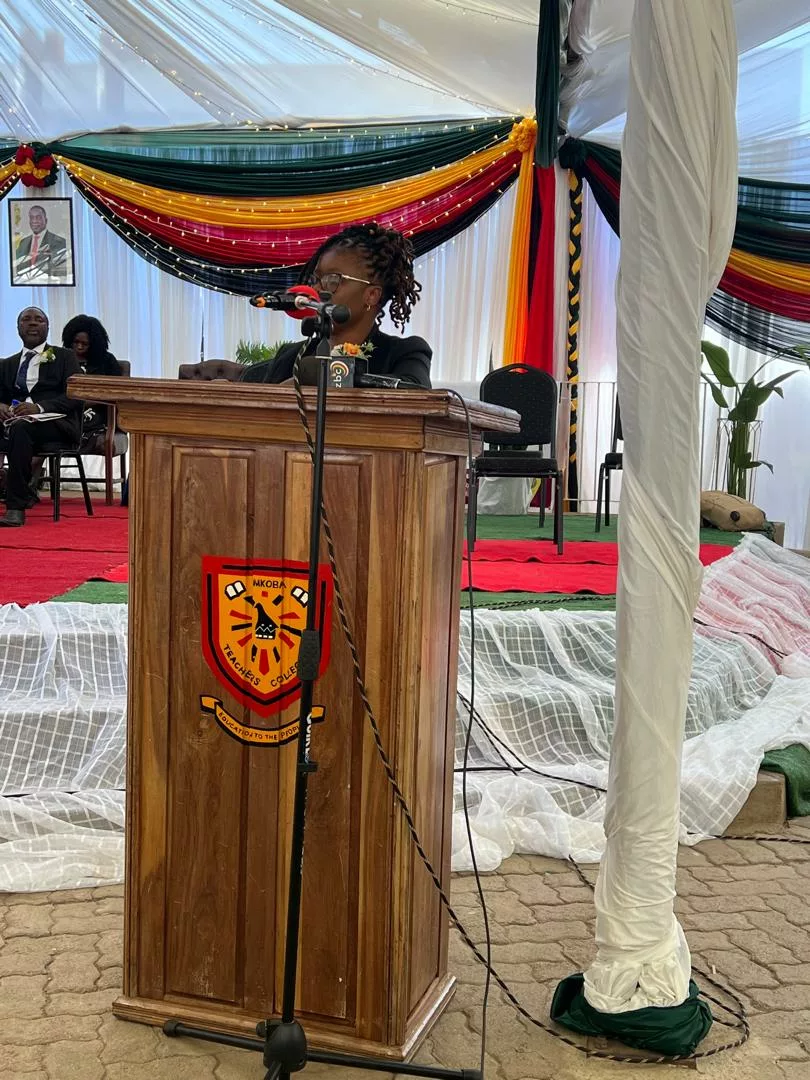|
Getting your Trinity Audio player ready...
|
The World Contraception Day, running under the global theme, “Contraception – It’s Your Life, It’s Your Responsibility,” underscores the importance of raising awareness of the benefits of contraception to individuals and the country at large not as a child-bearing barrier but as a scientific and safer means of child spacing.
These were the sentiments of the Minister of Health and Child Care, Honourable Dr Douglas Mombeshora on the occasion of commemoration of the World Contraception Day at Mkoba Teachers College in Gweru, Midlands Province on 26 September 2024.
“Annually, this event is celebrated globally on the 26th of September. The World Contraception Day is running under the global theme, “Contraception – It’s Your Life, It’s Your Responsibility.” Underscoring the importance of raising awareness of the benefits of contraception to individuals and the country at large not as a child-bearing barrier but as a scientific and safer means of child spacing. Most of us, whenever we hear anything to do with family planning, what comes into our minds is limiting/ stopping childbearing; that’s not it.
“Let me emphasize that, as a country, we do not prescribe the number of children one has to have, nor do we determine when one should have a child. Our mandate as the Ministry of Health and Child Care through the Zimbabwe National Family Planning Council is to assist you and the communities to plan their families as of when and the number of children they want,” Dr. Mombeshora said.
The Government of Zimbabwe, through the Ministry of Health and Child Care, has long been committed to providing and continuously improving access to quality integrated family planning and sexual reproductive health services to its citizenry since the attainment of independence.
The enactment of the Zimbabwe National Family Planning Act of 1985 and the establishment of the Zimbabwe National Family Planning Council (ZNFPC) demonstrated the high commitment of the government to offer quality integrated comprehensive contraceptives as part of Primary Health Care. The agency, ZNFPC, is obliged to coordinate, monitor, and take leadership in the provision of quality integrated sexual reproductive health and family planning services.
Addressing the same gathering, Zvanaka Sithole, the Technical Officer for Reproductive Maternal Newborn Child and Adolescent Health for the World Health Organization commended Zimbabwe’s remarkable achievements in family planning.

She said family planning is a crucial investment in a nation’s future, offering numerous benefits beyond health. It empowers individuals to make informed reproductive choices, leading to improved maternal and child health, economic prosperity, and gender equality.
An analysis by the FP2030, between 2018 and 2022 showed that the use of contraceptives has averted nearly 3,6 million unintended pregnancies, almost a million (918,000) unsafe abortions, and 12,700 maternal deaths in Zimbabwe. This is a cost-effective investment.
“The World Health Organization commends the Government of Zimbabwe for its unwavering commitment to family planning. The enactment of the Zimbabwe National Family Planning Act and the establishment of the Zimbabwe National Family Planning Council have laid a strong foundation for providing accessible and affordable contraceptive services. The government’s investment in reproductive and maternal health, including domestic financing and engagement with the private sector, is instrumental in strengthening family planning programs.
“As a result, Zimbabwe has achieved remarkable progress in contraceptive use, becoming one of the 5 countries in the African region that have managed to satisfy over 80% of the demand for family planning among women of reproductive age. The country’s contraceptive prevalence rate of 68% is also a testament to this dedication,” she said.
The World Health Organization develops evidence-based guidelines to promote safe and effective contraception, ensuring human rights are upheld. It assists in adapting and implementing these guidelines to strengthen their contraceptive policies and programs. WHO also invests in research and development of new contraceptive technologies and methods to expand access and improve service delivery.
ZNFPC Chief Executive Officer, Mr Farai Machinga said there are milestones achieved concerning contraception towards the attainment of the SDGs and Vision 2030 Agenda.
He said the theme of this year’s World Contraception Day shines a spotlight on the crucial role that contraceptive choices play in empowering individuals to take control of their reproductive health.
“As we mark this important day, it is essential to recognize the significance of providing a range of contraceptive options to individuals, allowing them to make informed decisions that align with their unique circumstances and aspirations. This theme is not only about contraception; it’s about fostering autonomy, enabling informed choices, and advancing global efforts toward Reproductive Health and Family Planning.
“Ladies and Gentlemen, through this master gathering, we aim to educate the general public raise awareness of contraception, and enable everyone including young people and persons with disabilities to make informed choices on their sexual reproductive health,” he said.






